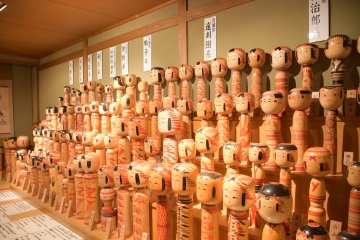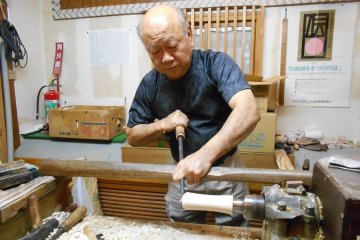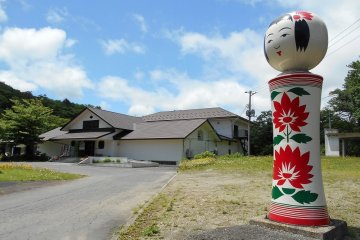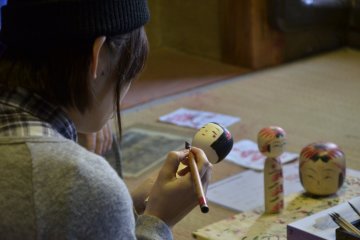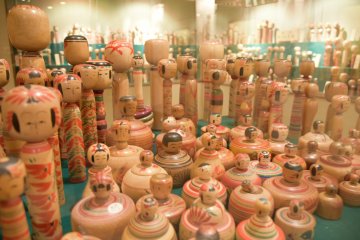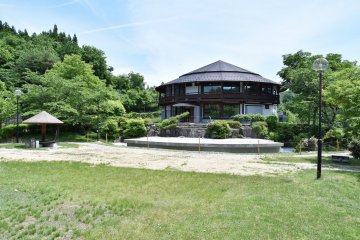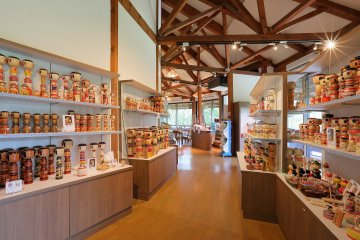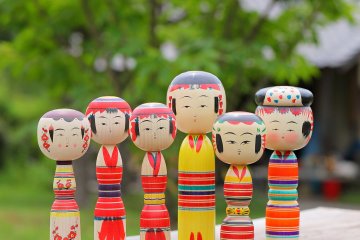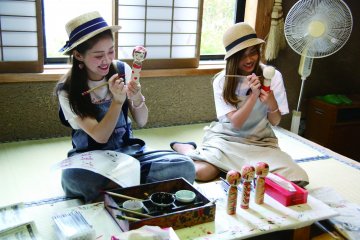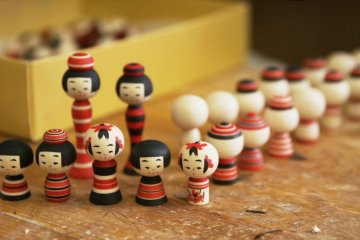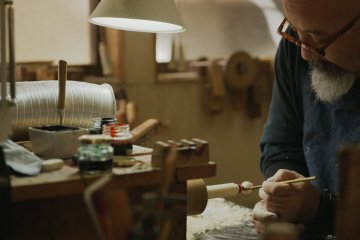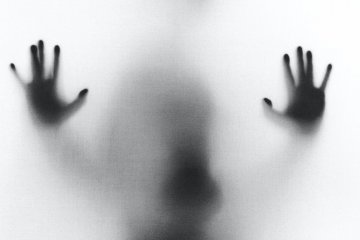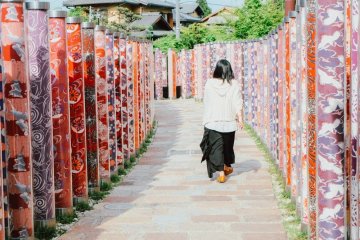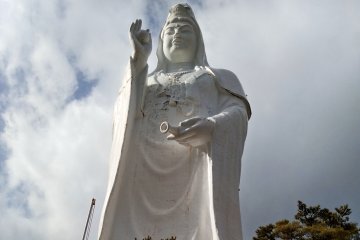These handcrafted wooden dolls are probably one of the most intriguing traditional crafts in Miyagi Prefecture. At first glance, they all look the same with their round heads, simple trunk without arms or legs, and only a few painted lines to suggest a face, hair, clothes, and even accessories. But look more closely and you will be enthralled by the variety of expressions on the faces, many serene, some curious, others content. You will find dolls that look deep in thought and dolls that look amused as if they remembered a joke they heard yesterday.

Children’s book writer and avid kokeshi collector, Kaname Fukazawa, said that “kokeshi itself seem to be the people of Tohoku.” Each doll is truly unique, with its own personality, as influenced by the personality of the kokeshi artisans who crafted them, their names signed at the back or on the bottom. But even the very same artist may paint a wide variety of faces, depending on their mood, the weather, and other conditions that day. Kokeshi artisans often model the faces of the dolls after their own children’s faces, and their work is crafted with the same care and affection they devote to their children. Each doll is one of a kind, making it an ideal collector’s item.

Kokeshi production takes a long time. First, wood is carefully selected and cut during the winter. Cherry wood lends a darker shade to the final product while maple is often the wood of choice for traditional dolls. The wood is left outdoors for one to five years to dry and season before they are shaped and carved. After the kokeshi’s face and body are painted, wax is applied.
Kokeshi were first produced in the late Edo Period, possibly sometime between 1804-1830, and the Togatta hot spring area is believed to have been the birthplace of the first wooden dolls. They were sold as souvenirs to the visitors of the hot springs who considered them good luck charms for health and fortune, or simply as toys for their children. While there are a wide variety of contemporary kokeshi dolls—from a kokeshi of Yoda from Star Wars to a wooden head and trunk version of the polka-dot loving artist Yayoi Kusama—there are only 11 traditional styles of kokeshi from all over Japan but Miyagi Prefecture boasts being the home of 5 of these styles: Naruko, Togatta, Yajiro, Sakunami, and Hijiori. These 5 styles evolved from the hot springs where the artisans were located and differ in the doll’s figure and tradition. For instance, Naruko kokeshi's trunk usually thins in the middle and is often painted with chrysanthemums while Togatta kokeshi has sloping shoulders and long thin trunk. Regardless of style, all kokeshi are characterized by the simplicity of their form.

In 1981, Miyagi kokeshi received the designation of a national traditional craft. Miyagi Prefecture is home to about 100 of Japan’s 180 kokeshi artisans. For kokeshi artisan families, particular designs and styles are maintained through the generations and so kokeshi embody the achievement and life history of families, and are an expression of regional pride. To own a kokeshi doll is to take part in this ongoing dialogue across time and history.
Facilities
Here is a list of facilities with kokeshi galleries and offer kokeshi painting experiences.
Nihon Kokeshi-kan / Japan Kokeshi Museum
Address: 74-2 Shitomae, Naruko-onsen, Osaki-shi, Miyagi-ken 989-6827
Tel: (+81) 0229-83-3600
Website: http://www.kokesikan.com
Closed: 01 January - 31 March.
Painting Experience: Available.
Miyagi Zao Kokeshi-kan / Miyagi Zao Kokeshi Museum
Address: 36-135 Togattaonsen Shinchi Nishiurayama, Zao-machi, Miyagi-ken 989-0916
Tel: (+81) 0224-34-2385
Website: http://www.kokeshizao.com/
Open: all year round.
Painting Experience: Available.
Yajiro Kokeshi Mura / Yajiro Kokeshi Doll Village
Address: 72-1 Yajirokita, Fukuokayatsumiya, Shioishi-shi, Miyagi-ken 989-0200
Tel: (+81) 0224-26-3993
Closed: Every Wednesday, or the following weekday if Wednesday lands on a national holiday.
Free Entrance Painting Experience: Available



